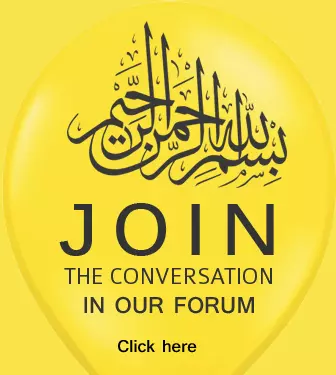France’s Islamic veil ban spurs passionate reaction worldwide
(CNN) — When Zahra Jaferi heard that France had banned the wearing of certain types of traditional Islamic head scarves in public, she said she felt conflicting emotions.
A practicing Shiite Muslim and correspondent for The Trentonian newspaper in New Jersey, Jaferi wears a head scarf, saying she believes strongly in her right to express freedom of religion.
At the same time, she said France has a right to preserve its culture and traditions.
“If France wants to preserve its beautiful ancient culture from the threat of the dual-identity of immigrants, then the government has a right to do so,” said Jaferi, 34.
France formally outlawed the wearing of face-masking burqas and niqabs two weeks ago. The burqa is a full-body covering that includes a mesh over the face, while the niqab is a full-face veil with an opening for the eyes.
The hijab, which covers the hair and neck but not the face, and the chador, which covers the body but not the face, apparently are not banned by the law, which has sparked a vigorous debate over freedom of religion in France.
CNN’s iReport asked its community of citizen-journalists to offer their opinion on the ban and the larger role of Islam in modern society. Jaferi is one of several iReporters who responded.
The veil ban is a contentious issue for many, partly because of the broad overlap between the cultural and religious significances of Muslim head scarves.
There is no express mandate in the Quran for women to wear a veil, and there are a wide range of differing theological positions on the issue within contemporary Islamic thought. Still, many Muslims view wearing the veil as an integral expression of their faith.
Jaferi said America has a far more egalitarian attitude toward Islam than France and many other Western nations. She points to the election of President Barack Obama as proof.
“America elected a president with a Muslim name and a Muslim father,” she said. “Prejudice has mellowed out a lot, it seems.”
For Jaferi, America is an ideal place to worship and live.
“Most Americans believe that God exists. The country is educated, the streets are organized, there is prosperity for many people. … It’s not a bad environment for anyone. An environment is what you make of it.”
Some iReporters said they strongly opposed the French ban, even though they’re not Muslim themselves, because of their views on freedom of religion.
Allan Robinson, 43, a practicing Christian from Bangor, Maine, said he believes France’s ban is evidence of mounting prejudice and racism against Arabs and Muslims in particular.
“While I myself am what is called a Christian, that does not give me or anyone else the right to infringe on or condemn Islam, or any other religious faith, merely because it might not adhere to my beliefs,” he said. “To condemn any religious faith demonstrates a serious form of prejudice.”
Robinson said the ban is a step down a slippery slope.
“If one set of religions are accepted in modern lifestyles, and others become forbidden or condemned, it becomes hatred,” he said. “And that hate, as demonstrated over history, leads to war, violence, death and injustices on a global scale.”
Others who responded said they supported the ban, for reasons both secular and religious.
Mugur Varzariu, 40, is a photojournalist from Bucharest, Romania. His passion for photography has taken him around the world, giving him an opportunity to observe a panoply of Islamic dress and rituals in a range of different cultural settings. (Varzariu took the pictures of traditional Islamic women’s dress in the gallery accompanying this article.)
Though he was raised as an Orthodox Christian, he is not religious now, and he said he supports France’s ban.
“All countries should ban the burqa and niqab,” he says. “Religions are like brands. … (These garments are) a branding element for Islam, and no religion should be allowed to own the public space.”
Despite his secular beliefs, Varzariu said he believes it is wrong to point to any faith as the source of religious violence in the world.
“Is it guns that kill people?” he asks rhetorically. “We all know that people kill people. … Islam itself is not incompatible with any other religion or the West. It’s not better or worse. The danger lies in the interpretation of the religion.
“In my religion book, if you are afraid that you will not make it to heaven because of fashion (the way you dress), then you are probably confusing Gianni Versace with the Prophet Mohammed,” he said.
Many Muslims in Europe view this issue quite differently than followers of Islam in the U.S.
Jasnim Nazeer, 24, is a practicing Muslim in the United Kingdom, where he works as a writer and reporter for a variety of Muslim-oriented publications.
Nazeer is opposed to the French ban, and said he believes that anti-Muslim sentiment in Europe is far more prevalent than in the U.S., owing to pervasive cultural stereotypes about Islam.
“I dislike the way the media continually tags ‘Muslim’ to the word ‘terrorists,’ ” he said.
“You always hear in the news about ‘Muslim terrorists’ and ‘Islamic extremists,’ but when other terrorist groups such as the (Tamil Tigers) in Sri Lanka or the Irish bombers were on the news, did you hear their religions being brought into it?” he asked. “Terrorism and terrorists are not related to any religion. If they use religion to justify their wrongdoings, those individuals are misguided.”
Nazeer also said he believes that much of the support for France’s new law is rooted in the widely held belief that Muslim women who wear such garments are oppressed.
In his opinion, the belief that female Muslims who wear the veil are oppressed is an insult to the self-determination of all Muslim women.
“There are many hardworking, positive Muslim women who differ from this misguided stereotype. From authors to lawyers, there are countless talents and contributions from Muslim women around the world which go unnoticed or simply overlooked.
“It is simply unfair that Muslims have been given this negative representation due to a few wrongdoers,” he said. “I hope that in the future, a more positive and respected outlook will be given to Muslims, as every religion deserves respect.”
Source: CNN
 (CNN) — When Zahra Jaferi heard that France had banned the wearing of certain types of traditional
(CNN) — When Zahra Jaferi heard that France had banned the wearing of certain types of traditional 





